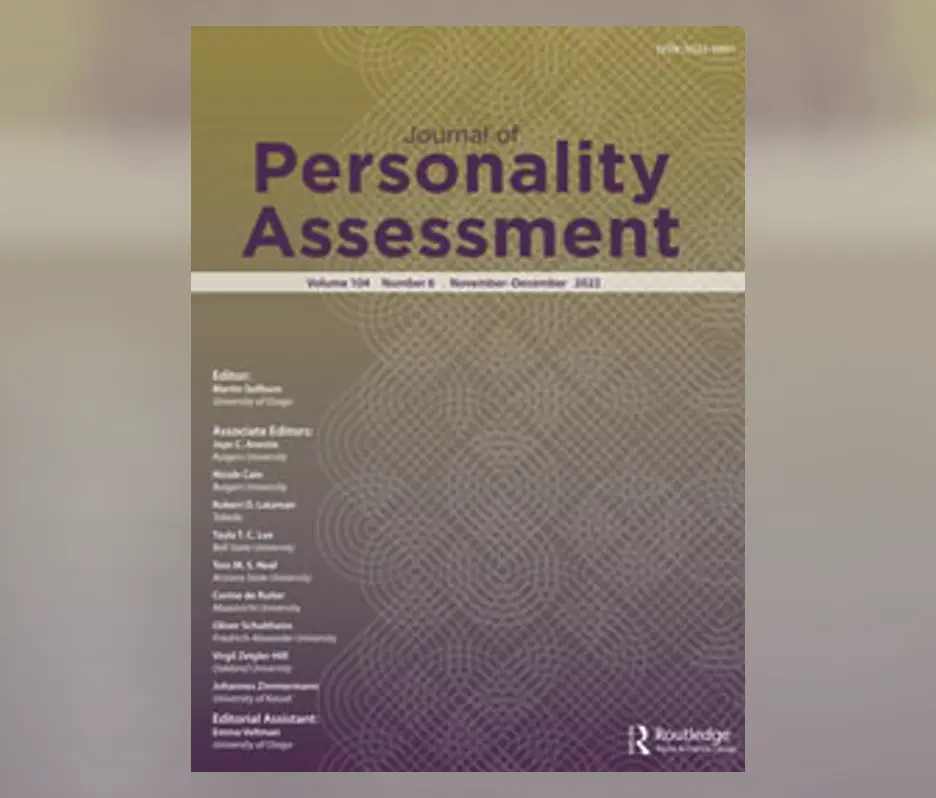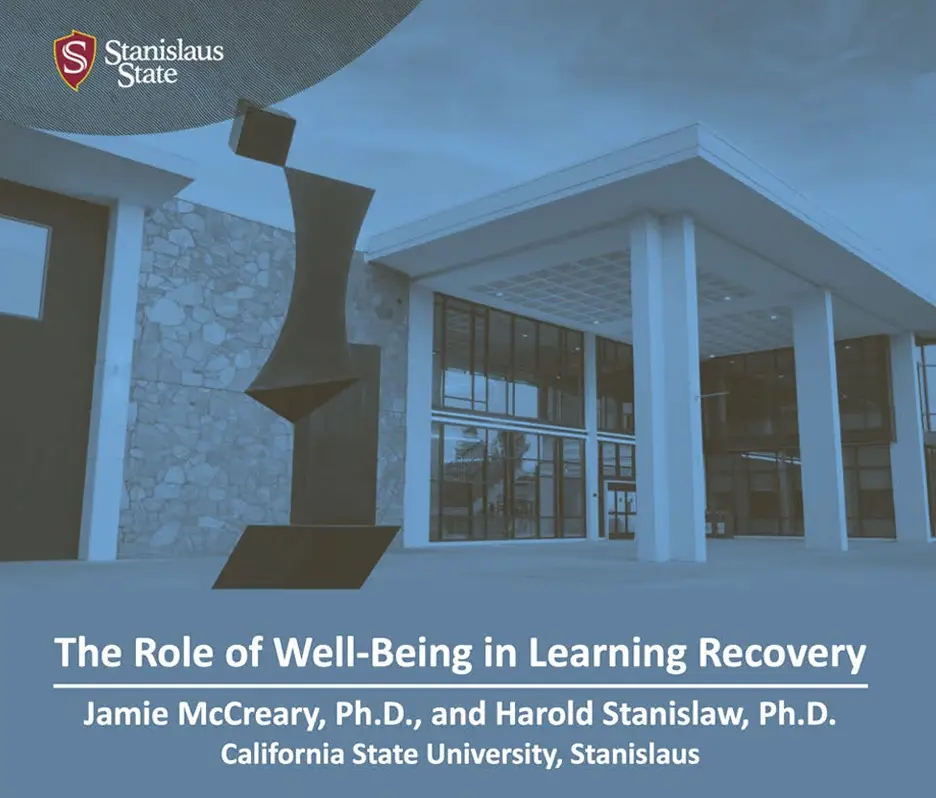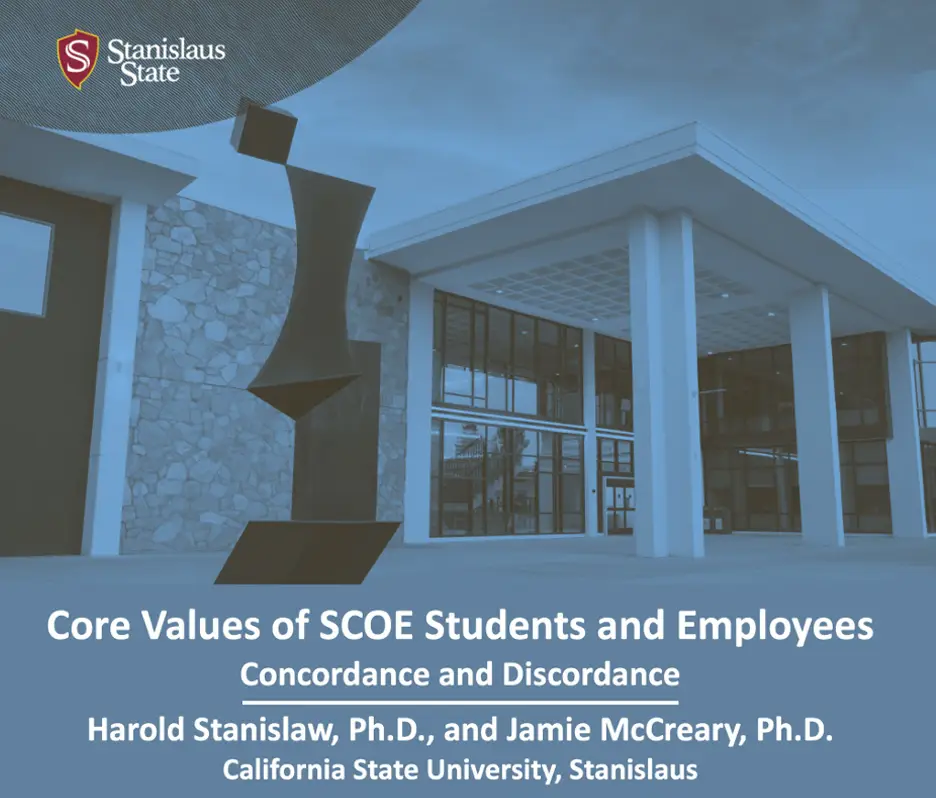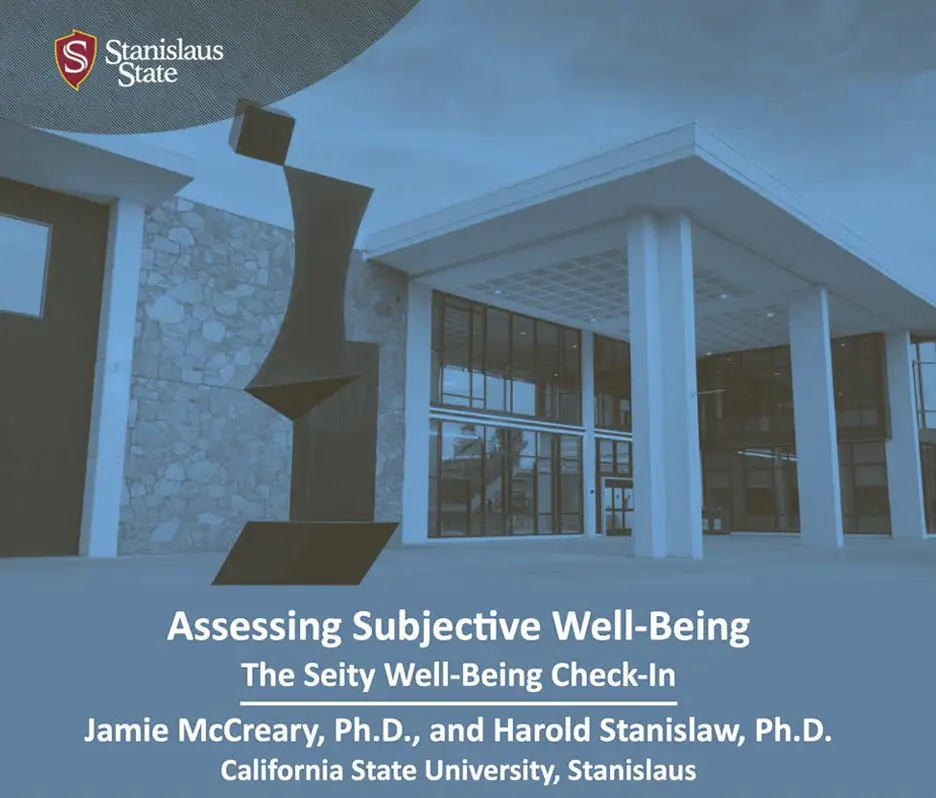
Seity Health science
Solutions grounded in rigorous scientific research and validation
We collaborate with research experts to ensure our methodologies are thoroughly vetted and scientifically reliable.
Seity Health science
Grounded in rigorous scientific research and validation
We collaborate with research experts to ensure our methodologies are thoroughly vetted and scientifically reliable.

Building on concrete, not quicksand
A foundation of proven science behind our methodology
Our team has been committed to scientific research for over two decades to ensure that our methodology is rooted in evidence, not just passing trends. Every element of our approach has been carefully studied, tested, and validated by experts in the field, with findings published in peer-reviewed journals that hold the highest standards of scientific integrity.
By basing our solutions on evidence rather than unproven approaches, we empower individuals and organizations with tools that truly make a difference. Our commitment to transparency means you can trust that our methodology is backed by solid science, with proven outcomes that will stand the test of time.

Lifelong learning frameworks
Evidence, not hype
Our evidence-based approach ensures that:
- Our results are reliable: Every recommendation and solution we provide is grounded in research, giving you results you can count on.
- Our science is scrutinized: Through peer review, our methods have been examined and validated by third party experts, adding another layer of credibility.
- Our approach is designed to last: By focusing on science, we offer solutions that are sustainable, relevant, and impactful over the long term.

Independent verification
Third party validation
Our research partners from the Department of Psychology at California State University, Stanislaus, have ensured our science is rigorous, credible, and aligned with the latest advancements in the field.
Our independent research partners

Dr. Harold Stanislaw, Ph.D.
Professor of Psychology at California State University, Stanislaus
With over 30 years of experience in higher education, Harold Stanislaw, Ph.D. joined Stanislaus State in 1996 and has held roles such as department chair, program director, and coordinator of the undergraduate psychology program. An expert in applied psychology, Dr. Stanislaw has contributed to over $18 million in grants supporting underserved students and serves as an accreditation reviewer and evaluator of educational programs. His research spans diverse topics, including autism treatment outcomes and school readiness, resulting in over 50 peer-reviewed publications and 100+ conference presentations globally.

Dr. Jamie McCreary, Ph.D.
Professor Emeritus of Psychology at California State University, Stanislaus
Jamie McCreary, Ph.D. is professor emeritus of psychology at California State University, Stanislaus, where she taught for over 30 years and served as department chair, program director, and Academic Senate member. Guided by values of learning, connection, and optimism, Dr. McCreary’s research has covered topics such as emotion contagion, family structure, and interpersonal perception, with over 40 conference presentations to her name. She has also contributed her expertise to community organizations in areas like strategic planning and leadership. Recently, she co-led projects to enhance quality of life assessments for developmentally delayed persons and evaluate school readiness programs.
Deep dive into our science
Peer reviewed science

The importance of belonging for well-being in college students
College students are vulnerable to mental health challenges that include depression, anxiety, and suicidal thoughts. We examined how subjective well-being in 369 college students in the United States was affected by the number of friends or family members who could provide essential needs (instrumental support) or with whom intimate or personal matters could be discussed (emotional support), the frequency of engaging with others, satisfaction with these engagements, and the sense of belonging.

Identifying Core Values with a hierarchical, ipsative, preference assessment
Jamie McCreary, Ph.D., and Harold Stanislaw, Ph.D.
Values provide a foundation for decision-making, behavior, and emotional reaction. They are often used by practitioners to design effective interventions for self-awareness and personal growth. This report describes a novel, user-friendly method that identifies Core Values with a hierarchical ipsatization procedure (HIP) that is transparent and efficient.
Technical reports

The role of well-being in learning recovery
Jamie McCreary, Ph.D., and Harold Stanislaw, Ph.D.

Core Values of SCOE students and employees
Jamie McCreary, Ph.D., and Harold Stanislaw, Ph.D.
Research Briefs

Core Values: Importance and assessment
Jamie McCreary, Ph.D., and Harold Stanislaw, Ph.D.
Published in the Journal of Personality Assessment, the benefits of value aligned living are real
Activates reward centers of the brain2
Gives you a future orientation2
Mental wellbeing improves3
Psychological distress decreases4
Self-compassion improves5
Increases positive behaviors towards others6
Less rumination after failing7

Reduces negativity8
Increases creativity at work9
Makes life feel more meaningful10
Higher levels of optimism and happiness11
Lower levels of sadness and anger12
Increased success in reaching goals13
Performance improves at work and school14-16
Published in the Journal of Personality Assessment, the benefits of value aligned living are real
Activates reward centers of the brain2
Gives you a future orientation2
Mental wellbeing improves3
Psychological distress decreases4
Self-compassion improves5
Increases positive behaviors towards others6
Less rumination after failing7
Reduces negativity8
Increases creativity at work9
Makes life feel more meaningful10
Higher levels of optimism and happiness11
Lower levels of sadness and anger12
Increased success in reaching goals13
Performance improves at work and school14-16

Ready to explore what’s possible?
If you would like to learn more about our personal and professional solutions, fill out the form below and a member of our customer success team will get in contact with you.
References: 1.Stanislaw H, McCreary J. Identifying Core Values with a Hierarchical, Ipsative, Preference Assessment. Journal of Personality Assessment. 2022. doi:10.1080/00223891.2022.2090369 2.Cascio CN, O’Donnell MB, Tinney FJ, et al. Self-affirmation activates brain systems associated with self-related processing and reward and is reinforced by future orientation. Soc Cogn Affect Neurosci. 2016;11(4):621-629. doi:10.1093/scan/nsv136 3.Sheldon, K. M., & Elliot, A. J. (1999). Goal striving, need satisfaction, and longitudinal well- being: The self-concordance model. Journal of Personality and Social Psychology, 75(3), 482-497. https://doi.org/10.1037/0022-3514.76.3.482 4.Yasuma N, Watanabe K, Iida M, Nishi D, Kawakami N (2019) Personal values in adolescence and psychological distress in adults: A cross-sectional study based on a retrospective recall. PLoS ONE 14(11): e0225454. https://doi.org/10.1371/journal.pone.0225454 5.Thomaes, S., Bushman, B. J., de Castro, B. O., & Reijntjes, A. (2012). Arousing “gentle passions” in young adolescents: Sustained experimental effects of value affirmations on prosocial feelings and behaviors. Developmental Psychology, 48(1), 103-110. https://doi.org/10.1037/a0025677 6.Lindsay, E. K., & Creswell, J. D. (2014). Helping the self help others: Self-affirmation increases self-compassion and pro-social behaviors. Frontiers in Psychology, 5(421), 1-9. https://doi.org/10.3389/fpsyg.2014.00421 7.Koole, S. L., Smeets, K., Van Knippenberg, A., & Dijksterhuis, A. (1999). The cessation of rumination through self-affirmation. Journal of Personality and Social Psychology, 77(1), 111-125. https://doi.org/10.1037/0022-3514.77.1.111 8.Emanuel, A. S., Howell, J. L., Taber, J. M., Ferrer, R. A., Klein, W. M., & Harris, P. R. (2018). Spontaneous self-affirmation is associated with psychological well-being: Evidence from a US national adult survey sample. Journal of Health Psychology, 23(1), 95-102. https://doi.org/10.1177/1359105316643595 9.Jiang, L. (2018). Job insecurity and creativity: The buffering effect of self‐affirmation and work‐affirmation. Journal of Applied Social Psychology, 48(7), 388-397. https://doi.org/10.1111/jasp.12519 10.Nelson, S. K., Fuller, J. A., Choi, I., & Lyubomirsky, S. (2014). Beyond self-protection: Self- affirmation benefits hedonic and eudaimonic well-being. Personality and Social Psychology Bulletin, 40(8), 998-1011. https://doi.org/10.1177/0146167214533389 11.Emanuel, A. S., Howell, J. L., Taber, J. M., Ferrer, R. A., Klein, W. M., & Harris, P. R. (2018). Spontaneous self-affirmation is associated with psychological well-being: Evidence from a US national adult survey sample. Journal of Health Psychology, 23(1), 95-102. https://doi.org/10.1177/1359105316643595 12.Bono, J. E., & Judge, T. A. (2003). Self-concordance at work: Toward understanding the motivational effects of transformational leaders. Academy of Management Journal, 46(5), 554-571. https://doi.org/10.5465/30040649 13.Gaudreau P. Goal self-concordance moderates the relationship between achievement goals and indicators of academic adjustment. Learning and Individual Differences. 2012/12/01/ 2012;22(6):827-832. doi:https://doi.org/10.1016/j.lindif.2012.06.006 14.Bono JE, Judge TA. Self-Concordance at Work: Toward Understanding the Motivational Effects of Transformational Leaders. The Academy of Management Journal. 2003;46(5):554-571. doi:10.2307/30040649 15.Smith AL, Ntoumanis N, Duda JL, Vansteenkiste M. Goal striving, coping, and well-being: a prospective investigation of the self-concordance model in sport. J Sport Exerc Psychol. Feb 2011;33(1):124-45. doi:10.1123/jsep.33.1.124 16.Purcell, R., Gwyther, K. & Rice, S.M. Mental Health In Elite Athletes: Increased Awareness Requires An Early Intervention Framework to Respond to Athlete Needs. Sports Med – Open 5, 46 (2019). https://doi.org/10.1186/s40798-019-0220-1

